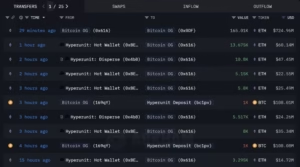Malaysia’s Securities Commission has officially identified Atomic Wallet as a prohibited service provider in the country after it was found to be operating a digital asset exchange (DAX) without proper registration. This decision follows a significant breach in 2023, where the wallet service was subject to a cyber-attack that resulted in losses exceeding $100 million, affecting numerous users who lost their crypto portfolios.
Atomic Wallet has become part of a growing list of cryptocurrency-related firms barred by Malaysia’s regulatory body, including Crypto Trade Malaysia and Best Exchange. The crackdown reflects a broader trend in the region to tighten regulations surrounding digital asset exchanges and cryptocurrencies.
In 2023, Atomic Wallet faced a severe cybersecurity incident linked to the notorious Lazarus Group, a North Korean hacking outfit. This hacking incident not only raised alarms about the vulnerabilities associated with centralized exchanges but also led to lawsuits in the United States against the company. A federal judge dismissed these class-action lawsuits due to jurisdictional issues, leaving many victims without recourse.
The unfortunate events faced by Atomic Wallet highlight a significant risk that many digital asset holders face today. With losses from crypto scams and hacks soaring by approximately 21% year-over-year in 2024, the growing trend indicates hackers increasingly target centralized points where users store their wealth. According to a report by Chainalysis, around $2.2 billion in funds were stolen through 303 incidents in 2024 alone, demonstrating a troubling increase from previous years.
Key statistics include:
- 43.8% of stolen crypto resulted from private key compromises.
- Centralized exchanges have emerged as the most common target for cyber-attacks.
- The crypto landscape in 2024 is seeing attacks focused on maintaining centralized entities, with experts suggesting a changing target strategy for cybercriminals.
As a response to the increasing cyber threats, Atomic Wallet has launched a $1 million bug bounty program to identify vulnerabilities in its software, indicating a move towards enhancing security measures. However, as regulators clamp down and public confidence dwindles, the future for many wallet providers may hang in the balance.




